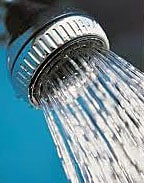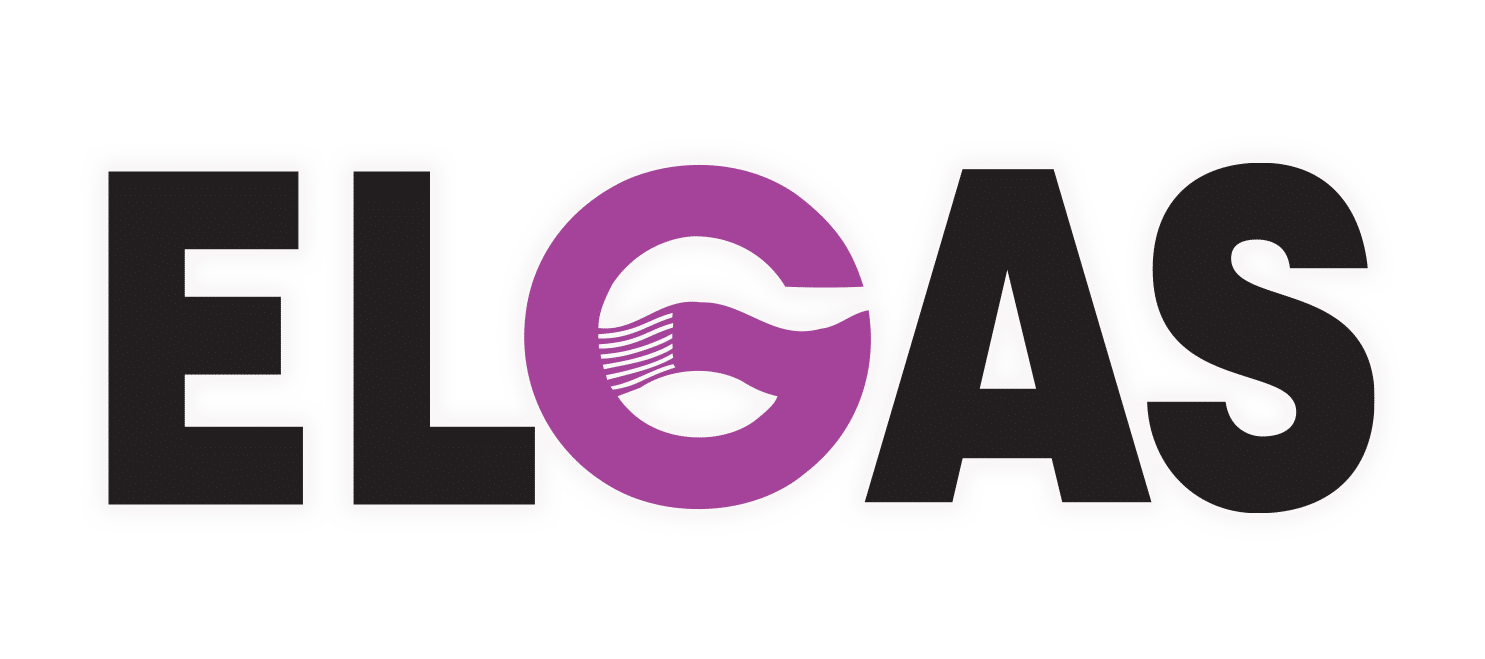Gas Hot Water Heater: Gas Instantaneous Hot Water Unit & Prices
When it’s time to get a new gas hot water heater, you should consider a gas instantaneous hot water unit.
The three of the most important questions are:
1. “Should I get a traditional storage gas hot water heater or a gas instantaneous hot water unit?”
2. “What size gas hot water heater do I need?”
3. “What is the best gas instantaneous hot water unit or storage gas hot water heater?”
The best instant hot water system is the gas instantaneous hot water unit from Rinnai.
It provides instantaneous hot water that is reliable, efficient and best value for money.
But is it better than a storage gas hot water heater?
Both types of gas hot water heater systems supply hot water but they do it in different ways.
Instant hot water systems sizing is best determined by peak demand whilst storage gas hot water heater sizing is generally based on the number of people.
We review the two gas hot water heater types and compare the pros and cons of both, as well as the prices, to help you make an informed decision…
Running Out of Hot Water – Instant vs Storage Gas Hot Water Heater
 With the best instant gas hot water heater, the water is heated as you use it.
With the best instant gas hot water heater, the water is heated as you use it.
The instant gas hot water heater can better maintain the flow rate indefinitely.
So, you basically never run out of instantaneous hot water, no matter how many people get to the shower before you.
A traditional storage gas hot water heater can only heat a certain number of litres at a time.
A residential storage gas hot water heater is typically in the 135L to 170L range.
Off-peak electric storage hot water system need to have a much larger capacity, as they have to last through the entire day.
Once all of the water in the tank is used up, it takes time to heat up the fresh water entering the tank.
If it runs out right in the middle of a shower, you have an uncomfortable problem.
You can finish with a cold shower or just stay soapy while you wait for the water to reheat. Neither is a good choice.
Continuous Gas Hot Water Heater – Gas Instantaneous Hot Water Unit
With a continuous gas hot water heater (gas instantaneous hot water unit) the water is heated as you use it instead of storing it in a tank.
The compact wall mounted unit can maintain the flow rate indefinitely, as long as a tap or shower is turned on, hence the name.
The systems are typically continuous flow gas hot water heater but electric continuous hot water systems are also available.
Electric Continuous Hot Water System vs Gas Instantaneous Hot Water System
The best instant hot water system is still a gas instantaneous hot water system.
Electric continuous hot water are relatively new and untested.
The gas instantaneous hot water system has been refined over many years.
A gas instantaneous hot water systems now has 6 or 7 Star ratings, which you won’t find with an electric unit.
Electric continuous hot water are also more expensive.
Energy Consumption
As mentioned, the best gas instantaneous hot water system now has 6 or 7 stars, the highest possible energy ratings.
Gas instantaneous hot water systems are better as they only need to run when the hot water is actually required and wasteful pilot lights are a thing of the past.
On the other hand, with a storage gas hot water heater the best energy ratings is 5 stars, as you have to use energy to maintain the temperature of the stored water 24/7.
The technology and energy saving designs are also very different.
Best Gas Instantaneous Hot Water Unit
 The best gas instantaneous hot water unit would also be the best continuous flow hot water system.
The best gas instantaneous hot water unit would also be the best continuous flow hot water system.
A gas instantaneous hot water system is also arguably the best gas hot water heater and the best hot water system.
Gas instantaneous hot water system is up to 7 star money saving energy efficiency, compact, and aesthetically pleasing.
They have no issues with Legionnaires’ disease, and best of all they have a continuous flow of hot water that never runs out.
They are better as they provide hot water on demand whenever you turn on the tap, as you need it.
These units only heat the water as it passes through so there is no storage tank.
This also means you never run out of hot water.
Energy Star Ratings – Best Instant Continuous Flow Hot Water & Hot Water Storage Tank
 The best instant hot water systems are now available in 7 Star units.
The best instant hot water systems are now available in 7 Star units.
The top selling instant hot water system is the Rinnai Infinity 26.
Better tankless continuous flow hot water heater systems are available in both natural gas and LPG models.
In contrast, the best storage hot water system are only rated at 4 or 5 Stars.
The top selling 5 star storage hot water system is the Rheem Stellar.
This means both the energy consumption and the running costs will be higher.
Storage hot water system are available in electric, natural gas and LPG models.
So, while we’d love to sell you more gas, we’d rather have you saving money and energy with the more efficient models.
Gas instantaneous hot water system is also the best choice for the environment.
Storage Gas Hot Water Heater vs Instant Hot Water System – Size and Aesthetics
 At about the size of a small suitcase, gas instant hot water systems are better as they are much smaller than a traditional storage gas hot water heater.
At about the size of a small suitcase, gas instant hot water systems are better as they are much smaller than a traditional storage gas hot water heater.
Mounted flush against the wall, the smaller instant hot water systems take up less space.
Instant hot water systems have the best aesthetics, as they don’t dominate the exterior appearance of your home.
A storage gas hot water heater is big, especially the electric off-peak models.
Even when installed outdoors, the size can get in the way, particularly with today’s smaller lot sizes.
Having this large object next to your house also does nothing for the appearance of your home.
Storage Gas Hot Water Heater vs Instant Hot Water System – CO2 Emissions
Greenhouse gas emissions are better reduced through the use of instant hot water systems.
Instant hot water systems produce about 75% less CO2 greenhouse gas emissions and are better when compared to a storage hot water system powered by coal-fired electricity.
Even when compared to a storage gas hot water heater, instant hot water systems are better and more eco-friendly.
They consume less gas and create less CO2.
Storage Gas Hot Water Heater vs Instant Hot Water System – Life Span
The best instant hot water systems can last up to 20 years.
Warranties for instant hot water systems are typically better, at 10 to 12 years.
Traditional storage gas hot water heater have a life span of around 10 to 12 years.
Warranties for a storage hot water system is typically only 5 to 10 years.
Storage Hot Water System vs Instant Hot Water System – Water Quality
An instant hot water systems has the best water quality, since there’s no tank to rust and no water stored, the water is better, staying cleaner and fresher.
Water from a storage gas hot water heater may pick up bits of rust and scale that build up within the tank.
Storage Hot Water System vs Instant Hot Water System – Speed
When you first turn on the tap, there is typically a delay in getting hot water, as the water in the pipes leading from the water heater to the tap will be cold.
Because it is kept hot, a storage gas hot water heater can be slightly faster in delivering the initial flow of hot water.
The best instant hot water systems takes a second or two for the unit to get up to temperature.
However, now there is a new system to eliminate the delay entirely.
The Rinnai Smartstart® Water Saver was developed to be the best instant hot water systems and reduce water wastage whenever a hot water is turned on.
It pre-heats the water in the pipes before you turn on the hot tap.
It is part of why the Rinnai Infinity range are the best instant hot water systems.
Cheap Gas Hot Water Heater?
In the past, there was a substantial difference in the price between cost of instant hot water systems and storage gas hot water heater.
The difference has now shrunken to the point where there is almost price parity between comparably sized units.
This is especially true if you are comparing 5 Star storage hot water system to the best instant hot water systems with 6 or 7 Star ratings.
Everyone wants cheap gas water heaters.
However, the days of super cheap 3 Star storage hot water system are long gone, as are their higher operating costs.
Cost of Instant Gas Hot Water System Price – Instantaneous Hot Water Price
Cost of an instant (instantaneous) gas hot water system price is typically from around $700 to $1500*.
The instant gas hot water heater price difference depends on the flow rate which is, in turn, dependent on the number of showerheads and taps.
Storage hot water system range in size from around 130L to 350L, with gas hot water system prices from approximately $800 to $1450*.
Efficiency star ratings also influence the instant gas hot water system price, with higher star ratings typically cost more in both types.
*Note that instant gas hot water system price are indicative only.
Storage Hot Water System vs Instantaneous Hot Water System – Health & Safety
 The best instantaneous hot water system maintains a bacteria free system with safer temperature that minimises scalding.
The best instantaneous hot water system maintains a bacteria free system with safer temperature that minimises scalding.
An instant hot water systems is better at the prevention of bacterial growth.
There is no stored water in which bacteria can breed.
Instant hot water systems can be better set at 50ºC, so the risk of scalding is greatly reduced without the need of a tempering valve.
With storage gas hot water heater, there is the potential for bacteria growth within the tank.
The World Health Organisation — WHO — recommends that a storage gas hot water heater be kept at a minimum of 60°C.
Unless a minimum of 60°C is maintained, storage gas hot water heater tanks can be a breeding ground for Legionnaires’ disease.
Also called Legionellosis, it is caused by a bacterium, Legionella pneumophila.
It is a respiratory disease that can cause severe pneumonia and is sometimes fatal.
However, Canadian studies have shown, even when the thermostat is set at 60°C, a high percentage — approximately 40% — of electric storage hot water systems remain contaminated.
This is because of the lower temperature, of about 30°C to 40°C, at the bottom of the hot water storage tank.
How a Tankless Continuous Flow Through Gas Hot Water Heater Works
 In summary:
In summary:
• Cold water flows through the continuous flow gas hot water heater when a hot water tap is opened inside your home.
• The flow is detected by a sensor that ignites the gas burner, to heat the water in the heat exchanger.
• The water typically follows a serpentine pattern through the heat exchanger. It absorbs as much heat as possible as it flows through the hot water heater.
• An electronic control unit modulates the gas burner to maintain a set water temperature.
• Available in LPG and natural gas continuous flow hot water models
See all the details on:
How a Tankless Hot Water Heater Works
Hot Water System Sizing?
For the full story, see Gas Hot Water Heater Sizing
Don’t Calculate by Number of People or Bathrooms
The sizing information available is very confusing because manufacturers, and others, are trying to provide a simplified answer to a complicated question.
Some suggest that you calculate by the number of bathrooms in your home while others say to go by the number of people in your family.
Also, in many cases, their recommendations are based on the worst case scenarios, assuming higher consumption than your actual water use.
Buying Too Large Wastes Money
The result is that many people end up buying a larger system than they actually need.
This costs them extra money when they buy the hot water system and will increase the ongoing operating costs, in many instances.
Factors to Really Consider
Simultaneous use is one of the fundamental determining factors.
 The number of people in your home combined with how and when they use hot water is the key.
The number of people in your home combined with how and when they use hot water is the key.
- Do they all take showers at the same general time of day?
- Take showers simultaneously in different bathrooms?
- Showers have WELS 3 Star Rated water saving shower head (maximum 9L/Min) or standard 18 to 25L/Min showerheads?
- Some prefer baths, which use more hot water? Is the bath or spa oversized, requiring even more hot water?
- Run the washing machine, using hot or warm water, while people are showering?
- Is your dishwasher connected to the cold or hot water? If hot, do you use it while hot water is being used elsewhere?
Showers Are the Key – Water Saving Shower Head
 Showers use the most hot water in a home.
Showers use the most hot water in a home.
People generally shower for 5 to 10 minutes.
Assuming you have a 3 Star water saving shower head and you mix in some cold water with the hot, the typical hot water consumption would probably be in the 7 litres per minute range.
If you also assume an 8 minute shower, water saving shower head will consume about 56 litres of hot water per shower or a family of four would consume 224 litres.
The use of WELS (Water Efficiency Labelling and Standards) 3 star rated water saving shower head is an important factor in saving water.
It also saves energy whilst reducing the size and cost of the hot water system required.
Hot Water Tank Example
 In the above example, if all four people take their showers in the morning, you would only need a hot water storage system with 224 litre first hour capacity.
In the above example, if all four people take their showers in the morning, you would only need a hot water storage system with 224 litre first hour capacity.
This is regardless of how many take showers at exactly the same time.
This all presumes that you are not using any other hot water devices at the time.
The use of additional hot water, after the shower period, would depend on the hot water system’s recovery time required to achieve full temperature.
So, with a larger family or house guests, a bit of scheduling may be required to avoid the need for a larger storage hot water system.
Off Peak Electric Issues
Off peak electric hot water storage units are a completely different story.
Inasmuch as they only heat water at night, hot water storage needs to be quite large to make sure you don’t run out of water during the day.
So, some of the electric savings is offset by the fact that you need to heat a larger storage hot water system.
The bigger hot water storage tank would also cost more to purchase.
Tankless Continuous Hot Water System Example
 For a tankless continuous hot water system unit, it would depend on how many showers are being used simultaneously.
For a tankless continuous hot water system unit, it would depend on how many showers are being used simultaneously.
Using the example above, if it’s two showers, then you only need a unit with a minimum flow rate of 14L/min.
If you have 3 people showering at exactly the same time, you would need a minimum 21L/min.
This does assume that you are not using other hot water devices simultaneously.
A continuous hot water system is better, as the recovery time is not an issue with continuous flow units, so even a large family with guests would not run out of hot water.
- BBQ – Gas and Charcoal BBQ Features – Charcoal BBQ vs Gas BBQ Comparison - March 31, 2025
- GPL Gas (GPL Fuel) – GLP Gas – LPG Gasul - March 26, 2025
- Think LPG When Building a New Home - February 26, 2025
Steve Reynolds
Technical Consultant
Steve Reynolds is a leading expert in the LPG industry with over 22 years of experience. As part of the national management team at ELGAS, Steve ensures the safe and efficient storage, handling, and transportation of LPG. He serves as the lead investigator for incidents and collaborates with authorities on industry developments.
Steve is a technical advisor to Standards Australia and Gas Energy Australia (GEA), and an active member of the World LPG Association (WLPGA), contributing to global standards and technical reviews. He holds a BSc. (Hons) in Industrial Chemistry from UNSW and has held senior safety and technical roles at ELGAS, making him a trusted authority in LPG safety and standards.
